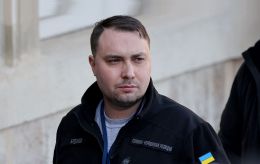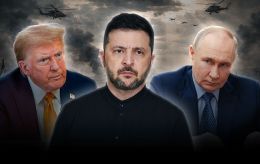NATO helps Ukraine fight, but not to achieve victory - Foreign Policy
 Ukrainian military (photo: Vitalii Nosach, RBC-Ukraine)
Ukrainian military (photo: Vitalii Nosach, RBC-Ukraine)
NATO's aid to Ukraine allows Kyiv to engage in warfare but does not enable it to achieve victory on the battlefield, according to Foreign Policy.
Summing up the NATO summit in Washington, the journal notes that the main contradiction in the West's strategy regarding support for Ukraine is evident. Specifically, military aid from allies allows the Ukrainian Armed Forces to push back against Russian forces but does not provide the capability to win the war.
"We’re basically propping up Ukraine to stay in the battle and make some advances and not outright win the battle. There’s not a real strategy for the war," said Liana Fix, a fellow for Europe at the Council on Foreign Relations.
On their part, Poland and the Baltic countries have long called for increased support for Ukraine. However, allies with deeper pockets and more advanced weapon systems, notably the US, have taken a more cautious stance to prevent escalation with Moscow.
The resumption of support comes against the backdrop of Russia conducting airstrikes on Ukraine's energy infrastructure, leading to widespread power outages in recent months.
According to Foreign Policy, analysts are skeptical that the measures announced at the summit could change the course of events on the battlefield.
Admiral Rob Bauer of the Royal Netherlands Navy, the chair of NATO’s Military Committee, stated that Ukrainians need more to achieve victory.
Additionally, the magazine notes that the Biden administration played a key role in warning of Russia's intentions to attack Ukraine and in strengthening Western support for the country. However, it has offered little in terms of ending the war.
“There is a gaping hole between saying we want to restore Ukraine’s sovereignty and what we’re actually doing. Right now, it just feels like we’re all saying it but people don’t really believe it,” said Andrea Kendall-Taylor, the director of the trans-Atlantic security program at the Center for a New American Security.

